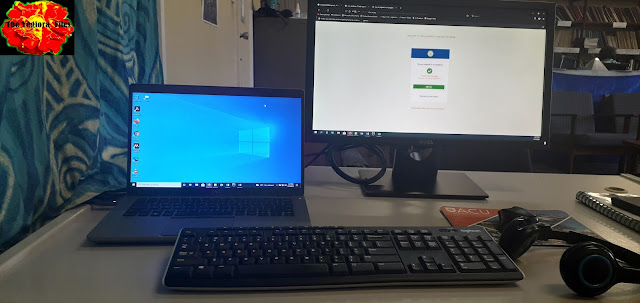My teaching philosophy
My teaching philosophy is "No one has monopoly over knowledge." I came up with this teaching philosophy in 2013 based on my first-year teaching experience at Divine Word University.
I realized there were many things I did not know about international relations. What I shared with students was what I learnt from reading, interacting with individuals, or group of individuals. It was purely academic or theoretical because I had no experience as a practitioner.
The awareness about my limitation was highlighted in the student unit evaluations. I was cautious of not letting the students dictate how I should teach based on their preconceived views. Students were fond of the teaching staff they interacted with in class so expected everyone to display similar traits and skill sets.
I analyzed their comments and profiled my colleagues. I learnt that all of my colleagues took the teacher centered approach to teaching. I decided that to be different or to offer something different, I have to be myself and not try to be like others. I decided to take a student centered approach to teaching and learning.
My teaching philosophy is more student centered. It highlights my limitation that I do not know everything and anything about international relations. It then tells students that knowledge is in the books you read, the videos files you watch, or the audio files you hear. You can be content or knowledge creators if you spend time to do research and analyze the endless amounts of information that is available.
I use different student centered teaching and learning strategies to help students become content or knowledge creators, to achieve the unit learning outcomes, and develop the graduate attributes, which are referred to as soft skills. I have since then encouraged students to focus on developing the graduate attributes because that is what they will need when they enter the workforce or start their own businesses.
In my unit on international law, I give a list of questions related to the selected case study to students, they are to choose five different questions and produce five different scripts and podcasts. This helps them to develop a deep understanding of the selected case study. In addition, they develop their problem solving, ICT, communication, and research skills.
I prefer giving major assessment tasks out of 40% like a podcast, case study, seminar, and social media awareness campaign instead of giving exams. From my point of view, I think exams do not help students develop many of the graduate attributes that will help them to succeed in their careers once they complete the program.
My approach to managing the learning environment is based on the University’s academic policies. I use the Special Consideration Policy to make decisions on late submission and non-submission of assessment tasks. Students are asked to read the policy and apply for special consideration five working days before or after the due date of an assessment task if they intend to or submit late. They are expected to argue their cases with strong supporting documents if they have genuine reasons for submitting late. The same applies to those who are unable to submit their assessment tasks.
If a student did not submit a particular assessment task and did not apply for special consideration within five working days after the due date or closing time, he or she has the right to appeal against the mark of zero given. They also have the right to appeal if they disagree with my special consideration decision, or have new evidence to argue why they submitted late or did not submit. They must make sure they have supporting documents to support their arguments, which is the essential element I focus on. I normally advise students in the beginning and throughout the semester to read the academic policies.
My aim is to help students develop the graduate attributes of professional knowledge and personal development. They will develop the understanding that in a formal working environment, the expectation is to meet deadlines and due dates set by those in charge. If one is unable to work within the time limitation given then there will be repercussions. Most importantly, I want them to understand that allowing them to submit whenever it is convenient for them after many have submitted before the closing time and date without a valid reason is an academic integrity issue.
The soft skills of emotional intelligence and adaptability are important. The experience of coping with a negative decision in the special consideration or academic appeal processes will help students to manage their emotions. It will help them adapt to different working environments or to be responsible learners.
My teaching philosophy was developed based on my own personal teaching experience. It has provided the basis for designing my syllabus and managing my units.

Comments
Post a Comment